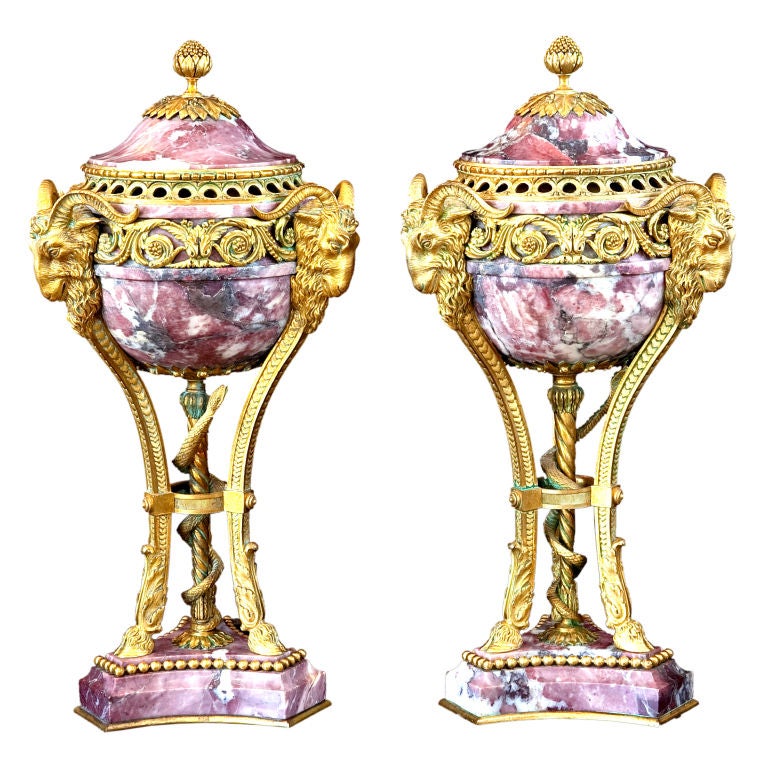 |
| Perfume burners from the time of Louis XVI |
Even the fountain's water was scented with perfume! The constant exposure to perfume would have its effect on Louis XIV at the end of his life - he became excessively sensitive towards scents and the smallest mint of a flowered scent was known to give him a migraine.
The Prince de Condé even helped the King's perfumer Martial with scenting the King's tobacco! Madame de Pompadour was definitely not shy on perfume either. The distinctive scent of musk could still be found in her chamber's curtains 20 years after her departure.
Today we happen to know some of the fragrances used by different courtiers, so take a look - maybe they can inspire you:
The Duchesse d'Aumont used coriander, iris, cloves, sweet flag and nut grass. Her scent was known as "à la Maréchale" because she was married to the Marshal of France.
Madame du Barry's favourite scent was made by the Italian perfumer Gian Paola Ferninis. Its original name was Aqua Admirabilis but that would not quite do at the French court where it was renamed as "Eau de Cologne". It was scented with neroli oil, bergamot, lavender, grape spirit and rosemary.
Of course, Marie Antoinette, was a leading lady when it came to perfume. Especially two of her perfumed fragrances have survived: "Sillage de la Reine" (In the Wake of the Queen) and "Jardin Secret" (Secret Garden). Sillage de la Reine was made of tuberose, orange blossom, jasmine, sandalwood, iris and cedar.
Jardin Secret was scented with bergamot, cardamom, jasmine, rose, incense, sandalwood, vanilla, patchouli, amber and tonka bean - of course some of these were a very, very small part of the perfume.
Louis XIV was fond of heavy scents when he was younger - his mother used a chocolate-inspired perfume - and the Sun King loved to experiment with new scents. At the end of his life he could only stand the soft scent of orange blossom.
The King's mistress, Madame de Montespan, used to bathe in water scented with vanilla.
Actually perfume became a problem between Louis XIV and Madame de Montespan. The couple was heard arguing as they stepped into the royal carriage with the Queen. Apparently, the King could not stand Madame de Montespan's perfume which was definitely not something that pleased his mistress. It is even said that she used heavy amounts of perfume because she could not take the smell of her royal lover!
 |
| Louis XIV would get his orange blossom from the orange trees at Versailles |

No comments:
Post a Comment